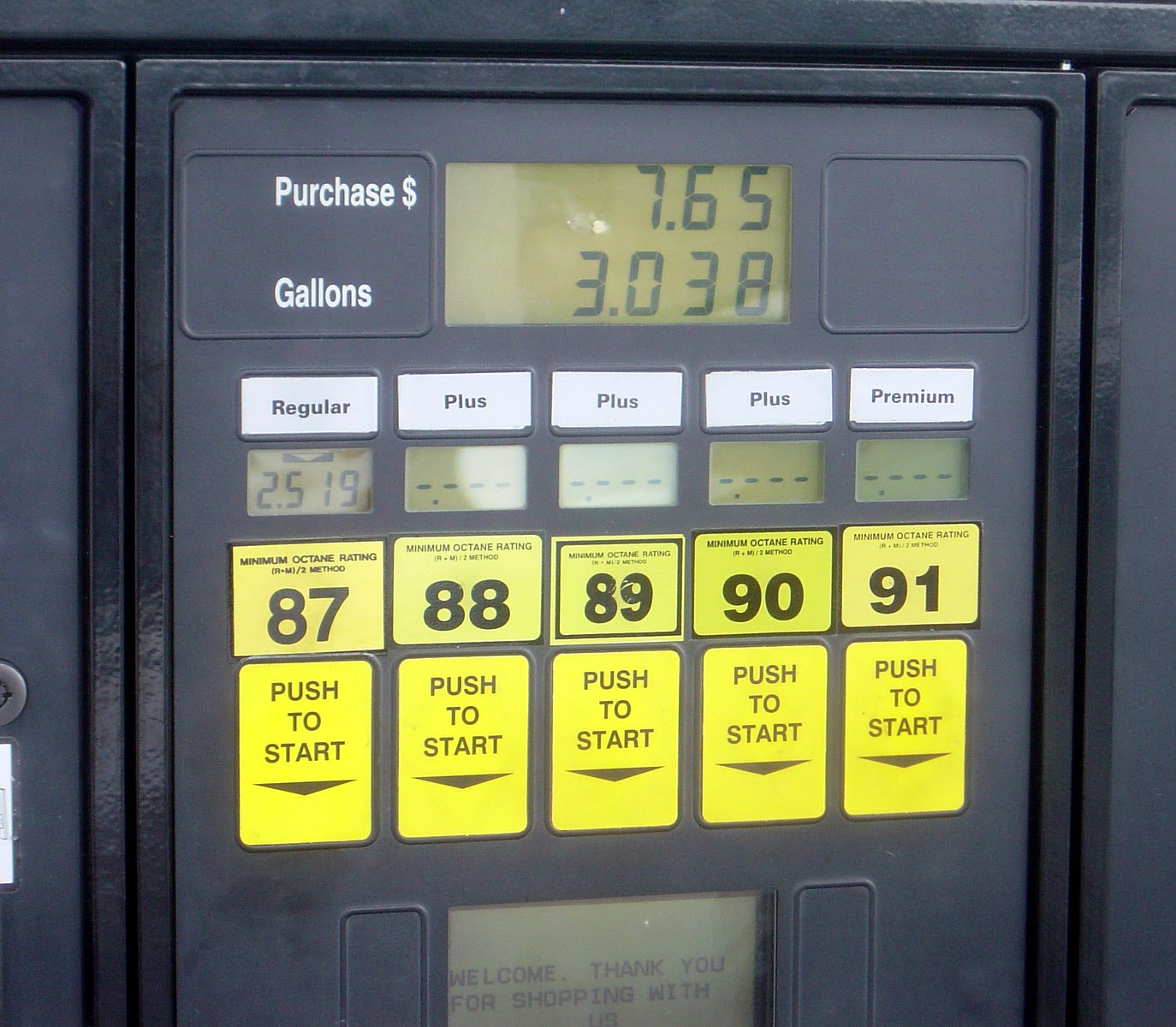87 vs 91 Gas Unleashing the Power at the Pump
Ever stood at the gas pump, staring at the different octane options, wondering what the fuss is all about? Is 91 octane gas really worth the extra cost, or is 87 octane just fine for your trusty vehicle? It's a common dilemma, and understanding the distinction between these fuel grades is crucial for both your car's performance and your wallet.
The difference between 87 and 91 octane gas primarily boils down to how each fuel handles compression. This "knock resistance" is measured by the octane rating. A higher octane rating, like 91, indicates a greater resistance to pre-ignition or "knocking," which can damage your engine. 87 octane is the standard grade, suitable for most vehicles, while 91 octane is considered premium and often recommended for high-performance engines.
The concept of octane ratings emerged with the development of more powerful and efficient internal combustion engines. As engines became more sophisticated, the need for fuel that could withstand higher compression without detonating prematurely became evident. This led to the introduction of higher octane fuels like 91, designed to prevent engine knock in high-performance vehicles.
Choosing the right octane is not just about performance; it's about protecting your engine's longevity. Using a lower octane than recommended by your vehicle's manufacturer can lead to knocking and potentially costly engine damage over time. Conversely, using a higher octane than necessary won't necessarily provide any performance boost and is essentially a waste of money.
Understanding the nuances of octane ratings empowers you to make informed decisions at the gas pump. It's about balancing performance, engine health, and cost-effectiveness. So, let's delve deeper into the details of the 87 vs 91 octane debate.
Simply put, the difference lies in how well each fuel type resists knocking. Knocking occurs when the air-fuel mixture ignites prematurely in the engine's cylinders, causing a knocking sound and potentially damaging the engine. 91 octane fuel is more resistant to knocking than 87 octane fuel, making it suitable for high-performance engines that have higher compression ratios.
Advantages and Disadvantages of 87 and 91 Octane Gas
| Feature | 87 Octane | 91 Octane |
|---|---|---|
| Cost | Lower | Higher |
| Performance | Suitable for most standard vehicles | Recommended for high-performance engines |
| Knock Resistance | Lower | Higher |
Best Practices:
1. Consult your owner's manual: Your car's manufacturer specifies the recommended octane rating.
2. Avoid using lower octane than recommended: This can lead to engine damage.
3. Don't waste money on premium gas if your car doesn't need it: Higher octane won't boost performance in standard engines.
4. Consider fuel additives with caution: Some additives claim to boost octane, but their effectiveness can vary.
5. Pay attention to your engine: If you hear knocking, even with the recommended octane, consult a mechanic.
Frequently Asked Questions:
1. Can I mix 87 and 91 octane? Yes, but it will result in a blended octane rating.
2. Will using 91 octane improve my fuel economy? Not unless your car requires it.
3. Is higher octane gas "cleaner"? No, octane rating doesn't relate to fuel cleanliness.
4. What causes engine knock? Premature ignition of the air-fuel mixture.
5. Can I damage my engine by using the wrong octane? Yes, using a lower octane than recommended can lead to damage.
6. Is it worth paying extra for premium gas? Only if your car requires it.
7. How do I know what octane my car needs? Check your owner's manual.
8. What happens if I accidentally put 87 in a car that requires 91? You may hear knocking, especially under load. Switch to the correct octane as soon as possible.
Tips and Tricks:
Keep track of your car's performance when using different octane levels. If you notice a difference, stick with the octane that provides the best results without knocking. Don't assume that higher octane is always better.
Understanding the difference between 87 and 91 octane is crucial for maintaining your car's health and performance while managing your fuel budget effectively. Choosing the right octane isn't about chasing the highest number; it's about providing your engine with the fuel it's designed for. By consulting your owner's manual, paying attention to your engine, and understanding the basic principles of octane ratings, you can make informed decisions at the gas pump, saving money and protecting your vehicle in the long run. Remember, the right fuel choice leads to a smoother, more efficient, and ultimately more enjoyable driving experience. Don't be swayed by marketing hype or misconceptions; arm yourself with knowledge and make the best choice for your car and your wallet.
Keep your engine cool the ultimate guide to car coolant changes
Unlocking ap classroom unit 6 your guide to progress check mastery
Decoding the phenomenon of fnaf cc x gregory














